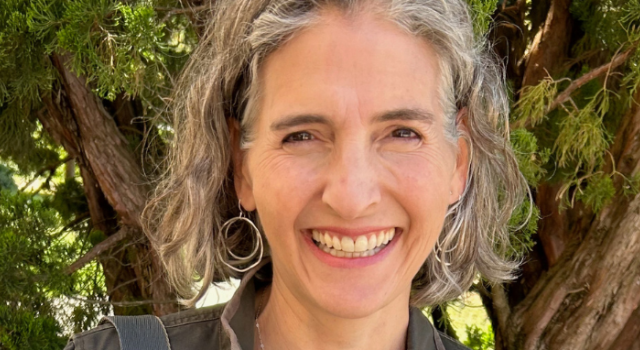History
Regardless of geographic or chronological focus, students at Hampshire connect their findings about the past to the issues and conflicts of the present day.
History is taught not as a series of static events, but as a method of inquiry, encouraging students to develop critical analytic and writing skills and to consider how we create "history." Faculty expect students to ask not only "What happened?" but also, "How do we know what happened and what don't we know?" Students are encouraged to conduct primary research and to pose and answer their own questions.
Student Project Titles
- International Volunteers in the Spanish Civil War
- Nazis and Cowboys: A Comparison of Lebensraum and Manifest Destiny Ideologies
- An Illustrated History of Berlin
- When Good Met Evil: Stories of Liberation in WWII
- Fallen Troy: A Narrative of Industry and Society in a Rust Belt Town
- Privileged places: how relics built and strengthened communities in southern medieval France
- Relict, Consort, Wife: Women's Gravestones from 1750 to 1815
Sample First-Year Course
Making Sense of the Past
Although many of us have learned history as a conglomeration of facts, dates, and key figures, for professional historians it is a way of knowing, a method for developing an understanding about the relationships of peoples and events in the past. In this course, we engage in studying what is intrinsic to historical thinking and how it might be taught. We do so by engaging in creating historical knowledge using local primary documents and artifacts and by reading cognitive psychology literature on the mental processes historians use. Students complete a local history project, reflect on the thinking involved and on the ways in which such a project could be used in schools.
Sample Courses at Hampshire
- African Diasporic Ideals, Identity and Movements in the 20th Century
- Bodies and Souls in History
- Encounters With the Past
- The Era of European Supremacy
- Europe and the World (1500-1800): Travelogues, Colonization, Ethnography
- Gold, Lead, and Gunpowder: Knowledge and Power in the Renaissance
- The Italian Renaissance
- The Making of Modern South Asia
- Media in a Time of War: WWII and U.S. Popular Culture
- Nuns, Saints, Mystics in Medieval and Early Modern Europe
- Queering the Renaissance
- "The Sixties": Intersections of Movement and Popular Culture
- Southern History and Literature
- U.S. Labor History
Through the Consortium
- African Environmental History (AC)
- The American People, 1500-1865 (MHC)
- The American War in Vietnam (UMass)
- Aspects of Middle Eastern History (SC)
- Empire Building in Eurasia (SC)
- Era of French Revolution (AC)
- History of China (UMass)
- Latin America-Colonial Period (UMass)
- Japanese History to 1700 (AC)
Facilities and Resources
Five College Programs
A number of programs that encourage interdisciplinary approaches to the study of history, politics, and culture are offered through the Five College consortium. Through cross-registration and shared faculty, the five colleges offer programs in East Asian Studies, Crossroads in the Study of the Americas, African Studies, International Relations, Women's Studies, Latin American Studies, and Asian/Pacific/American Studies.



